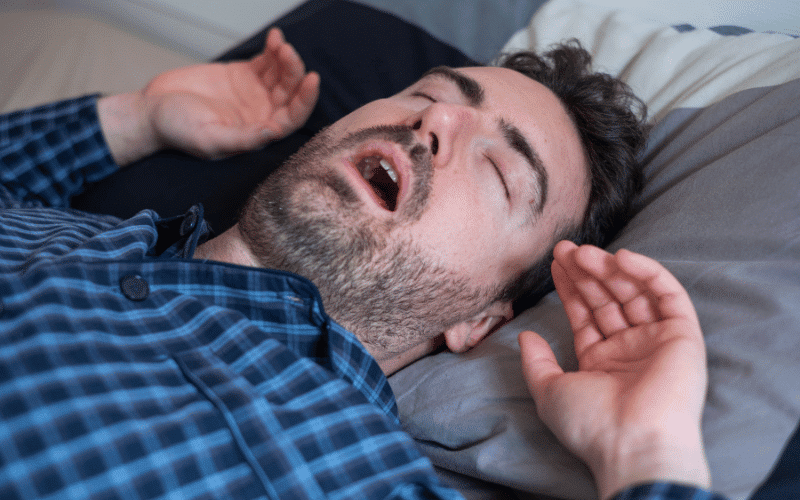7. Sleep Apnea Can Worsen AFib and Heart Failure

Our seventh fact highlights an often-overlooked factor that can exacerbate both AFib and heart failure – sleep apnea. Sleep apnea, a condition characterized by repeated interruptions in breathing during sleep, can lead to several heart-related problems, including AFib and heart failure.
Obstructive sleep apnea, the most common form of sleep apnea, can affect the heart’s rhythm and blood pressure, causing or worsening AFib. These repeated episodes of low oxygen levels during sleep due to interrupted breathing can strain the heart and blood vessels, increasing the risk of AFib.
When it comes to heart failure, sleep apnea can be doubly damaging. The cessation of breathing leads to lower oxygen levels, causing the heart to pump harder to compensate for the reduced oxygen supply. Over time, this added strain can lead to heart failure.
If you have AFib or heart failure and struggle with snoring, unexplained fatigue, or morning headaches, it might be worth discussing sleep apnea with your healthcare provider. The good news is that treating sleep apnea, often with a device that provides positive airway pressure, can improve both AFib and heart failure symptoms. (7)